Miracles in Those Days and in Our Own: A Note on the Hanukkah Blessings
by Alvan Kaunfer
You may have grown up, as I did, singing the two Hanukkah candle blessings thanking God for "performing miracles for us " ... ba-yamim ha-heim ba-z'man ha-zeh.” Many of you may have noticed a small but significant change in that familiar blessing in the Siddur Sim Shalom prayer book. In both the older and newer editions, the second Hanukkah blessing, as well as the al ha-nissim prayer inserted in the amidah and birkat ha-mazon, read ba-yamim ha-heim U-va-z'man ha-zeh. That small addition of the "u"– "and" – may seem like a small grammatical change, but it is highly significant theologically.
I have been avoiding translating the phrase purposely. The traditional phrasing, ba-yamim ha-heim ba-z'man ha-zeh, means that we thank God for the miracles "in those days (i.e. in the times of the Maccabees) at this season (of the year)." By adding the small "u," the meaning of the blessing changes, quite radically, to "in those days, and in our own times." The different perspective is clear. The traditional rendition of the blessing is about the victory of the Maccabees back then – "in those days" – at wintertime – "at this season." But the second version implies that God performs miracles in our own times as in days of old. Miracles still continue for us – it is not only a historical phenomenon.
That is a nice idea, but was there any basis for this reading? Actually, there is a strong and compelling history to that version. Three classic historical siddurim have that very reading! Seder Rav Amram, a ninth century listing of the order of the service, has ba-yamim ha-heim u-va-z'man ha-zeh for the al ha-nissim prayer in most manuscripts. Similarly, the tenth century Siddur Rav Saadia Ha-Gaon, and the Mahzor Vitry(from the school of Rashi) also read u-va-z'man ha-zeh. We even have a Genizah fragment published by Jacob Mann that reads u-va-z'man ha-zeh in a version of the al ha-nisim for Purim. The u-va-z'man ha-zeh version was also apparently preserved in the liturgy of the community in Rome (Otzar Ha-Tefillah, p. 178).
One of the classic commentaries on the Shulhan Arukh Code of Jewish Law, by David Ben Samuel Ha-Levi (Poland, 1586-1667), known as the Turei Zahav or Taz, discusses the matter at length (paragraph 682). He paraphrases the earlier commentary of the commentator known as the Levush as endorsing the reading including the "u," "in order to include all the miracles which God did for our ancestors, and to specify this particular event as an example of all miraculous phenomena, since every day God does miracles for us, both apparent and hidden, just as God did for our ancestors, both in apparent and hidden ways." But the Taz does not agree with that reasoning, because, he says that the earlier phrase, "in those days" implies in the times that our ancestors lived, and by including the "u" would wrongly suggest that the miracle for our ancestors, the Maccabees, was performed in our own times. The Taz's position was maintained in later halakhic decisions.
I asked Rabbi Jules Harlow, the editor of the original Siddur Sim Shalom, how the committee arrived at the decision to include the u-vaz'man hazeh version. He responded to me in an e-mail that, "It grew out of a suggestion of Rabbi Hayyim Kieval, z"l, at a meeting of the Prayer Book Committee for Siddur Sim Shalom. After he presented his case, there was no extended discussion." He adds, "We had no intention of connecting it specifically to the Six Day War."
So if you want to assert that in some sense the miracles of Hanukkah and the wonders of the past can continue in our own time, don't forget to include the "u" when you recite the Hanukkah blessings this year, bayamim ha-hem u-vaz'man hazeh.
